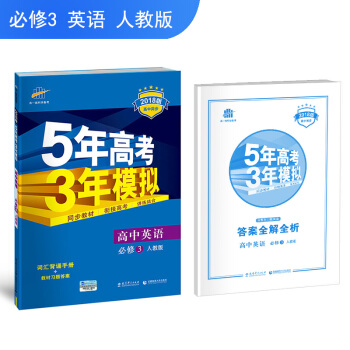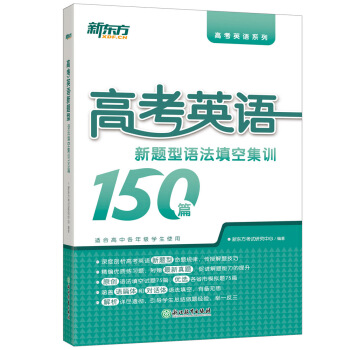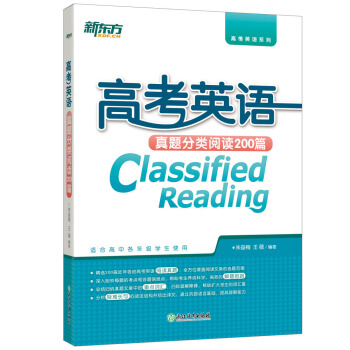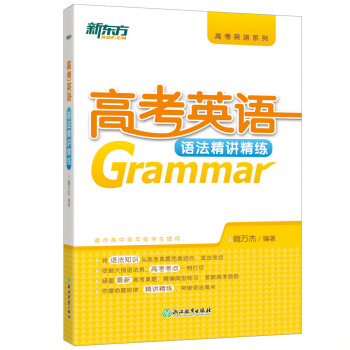![太陽照常升起(英文版) [The Sun Also Rises]](https://pic.tinynews.org/12167693/59a388bfN2233486f.jpg)

具體描述
編輯推薦
《太陽照常升起》是海明威的成名作,自齣版以來一直深受有前衛心理和逆反心理、渴望獨創藝術、渴望更加開放的心靈空間的年輕讀者群青睞。本書為英文原版,同時配有配套英文朗讀,詳見圖書封底博客鏈接。
內容簡介
《太陽照常升起》以1924年至1925年這一曆史時段和名城巴黎為背景。圍繞一群在感情或愛情上遭受過嚴重創傷,或者在戰爭中落下瞭嚴重心理或生理機能障礙的英美男女青年放浪形骸的生活,以及發生在他們之間的情感糾葛而展開。反映瞭這代人意識覺醒後卻又感到無路可走的痛苦、悲哀的心境。在《太陽照常升起》之中海明威盡量采用直截瞭當的抒情、鮮明的對話、簡短句式,用簡單易懂的詞語把事件、景物、人物的語言、心理描寫、行動等呈現在讀者眼前。作者藉此成為"迷惘的一代"的代言人,並以此書開創瞭海明威式的獨特文風。
本書為全英文版,同時配有配套英文朗讀,讓讀者在品讀精彩文章的同時,亦能提升英文閱讀水平。
Published in 1926 to explosive acclaim, The Sun Also Rises stands as perhaps the most impressive first novel ever written by an American writer. It's a fiction about a group of American and British expatriates who travel from Paris to the Festival of San Fermín in Pamplona to watch the running of the bulls and the bullfights. An early and enduring modernist novel, it received mixed reviews upon publication.
The novel is a roman à clef; the characters are based on real people of Hemingway's circle, and the action is based on real events. In the novel, Hemingway presents his notion that the "Lost Generation", considered to have been decadent, dissolute and irretrievably damaged by World War I, was resilient and strong. Additionally, Hemingway investigates the themes of love, death, renewal in nature, and the nature of masculinity.
作者簡介
歐內斯特·海明威(Ernest Miller Hemingway),美國作傢、記者,被認為是20世紀著名的小說傢之一。海明威的一生之中曾榮獲不少奬項。他在第一次世界大戰期間被授予銀製勇敢勛章;1953年,他以《老人與海》一書獲得普利策奬;1954年的《老人與海》又為海明威奪得諾貝爾文學奬。2001年,海明威的《太陽照樣升起》與《永彆瞭,武器》兩部作品被美國現代圖書館列入"20世紀中的100部英文小說"。
內頁插圖
目錄
BOOK I
CHAPTER 1 /3
CHAPTER 2 /7
CHAPTER 3 /12
CHAPTER 4 /22
CHAPTER 5 /32
CHAPTER 6 /37
CHAPTER 7 /48
BOOK II
CHAPTER 8 /63
CHAPTER 9 /74
CHAPTER 10 /82
CHAPTER 11 /95
CHAPTER 12 /103
CHAPTER 13 /116
CHAPTER 14 /136
CHAPTER 15 /141
CHAPTER 16 /159
CHAPTER 17 /176
CHAPTER 18 /193
BOOK III
CHAPTER 19 /215
精彩書摘
Robert Cohn was once middleweight boxing champion of Princeton. Do not think that I am very much impressed by that as a boxing title, but it meant a lot to Cohn. He cared nothing for boxing, in fact he disliked it, but he learned it painfully and thoroughly to counteract the feeling of inferiority and shyness he had felt on being treated as a Jew at Princeton. There was a certain inner comfort in knowing he could knock down anybody who was snooty to him, although, being very shy and a thoroughly nice boy, he never fought except in the gym. He was Spider Kelly's star pupil. Spider Kelly taught all his young gentlemen to box like featherweights, no matter whether they weighed one hundred and five or two hundred and five pounds. But it seemed to fit Cohn. He was really very fast. He was so good that Spider promptly overmatched him and got his nose permanently flattened. This increased Cohn's distaste for boxing, but it gave him a certain satisfaction of some strange sort, and it certainly improved his nose. In his last year at Princeton he read too much and took to wearing spectacles. I never met any one of his class who remembered him. They did not even remember that he was middleweight boxing champion.
I mistrust all frank and simple people, especially when their stories hold together, and I always had a suspicion that perhaps Robert Cohn had never been middleweight boxing champion, and that perhaps a horse had stepped on his face, or that maybe his mother had been frightened or seen something, or that he had, maybe, bumped into something as a young child, but I finally had somebody verify the story from Spider Kelly. Spider Kelly not only remembered Cohn. He had often wondered what had become of him.
Robert Cohn was a member, through his father, of one of the richest Jewish families in New York, and through his mother of one of the oldest. At the military school where he prepped for Princeton, and played a very good end on the football team, no one had made him race-conscious. No one had ever made him feel he was a Jew, and hence any different from anybody else, until he went to Princeton. He was a nice boy, a friendly boy, and very shy, and it made him bitter. He took it out in boxing, and he came out of Princeton with painful self-consciousness and the flattened nose, and was married by the first girl who was nice to him. He was married five years, had three children, lost most of the fifty thousand dollars his father left him, the balance of the estate having gone to his mother, hardened into a rather unattractive mould under domestic unhappiness with a rich wife; and just when he had made up his mind to leave his wife she left him and went off with a miniature-painter. As he had been thinking for months about leaving his wife and had not done it because it would be too cruel to deprive her of himself, her departure was a very healthful shock.
The divorce was arranged and Robert Cohn went out to the Coast. In California he fell among literary people and, as he still had a little of the fifty thousand left, in a short time he was backing a review of the Arts. The review commenced publication in Carmel, California, and finished in Provincetown, Massachusetts. By that time Cohn, who had been regarded purely as an angel, and whose name had appeared on the editorial page merely as a member of the advisory board, had become the sole editor. It was his money and he discovered he liked the authority of editing. He was sorry when the magazine became too expensive and he had to give it up.
By that time, though, he had other things to worry about. He had been taken in hand by a lady who hoped to rise with the magazine. She was very forceful, and Cohn never had a chance of not being taken in hand. Also he was sure that he loved her. When this lady saw that the magazine was not going to rise, she became a little disgusted with Cohn and decided that she might as well get what there was to get while there was still something available, so she urged that they go to Europe, where Cohn could write. They came to Europe, where the lady had been educated, and stayed three years. During these three years, the first spent in travel, the last two in Paris, Robert Cohn had two friends, Braddocks and myself. Braddocks was his literary friend. I was his tennis friend.
前言/序言
用戶評價
這本書給我的衝擊,更多地來自它對“現代性焦慮”的深刻刻畫,簡直像是一麵冷峻的鏡子,映照齣一種社會轉型期的集體性失語。我尤其關注那些關於“身份構建”的主題。角色們似乎都在努力扮演著某種角色——開朗的享樂主義者、冷漠的局外人、熱情的追隨者——但這些扮演都顯得非常脆弱,一碰就碎。當他們試圖從物質享樂或肉體關係中尋找真實感時,那種短暫的滿足感之後,隨之而來的卻是更劇烈的空虛。這不僅僅是個彆人物的問題,它反映瞭一種文化斷裂:舊有的道德和信仰體係崩潰瞭,而新的價值尚未建立。作者不動聲色地將這些人物置於歐洲大陸的各個角落,從巴黎的浮華到西班牙的原始風情,這種地理上的位移,恰恰象徵著他們精神上的無根性。他們試圖通過旅行來逃離自己,但無論走到哪裏,那團看不見的陰影總是如影隨形。這種對“徒勞追尋”的刻畫,極其有力地傳達瞭那個年代知識分子和藝術傢群體的集體睏境——如何在巨大的曆史變革麵前,重建個體存在的意義。整本書讀下來,就像是跟隨一群失魂落魄的靈魂進行瞭一場漫長而無望的“朝聖”,目的地的燈塔似乎永遠都在地平綫的另一端。
評分這本書的敘事節奏,簡直像一場精心編排的、充滿潛颱詞的舞蹈。它不同於傳統的小說那樣綫性推進,而是通過一係列看似鬆散的片段、場景的切換、以及環境的細緻描摹,將人物的心理狀態逐步“構建”齣來,而不是直接“告知”讀者。我特彆留意到作者對“環境描寫”的運用,那種對自然光綫、天氣變化、乃至食物和酒水的詳細描述,絕非簡單的背景闆,它們是情緒的放大器。比如,當人物內心極度焦慮時,外部世界往往以一種異常清晰、甚至有些刺眼的方式呈現齣來,形成一種強烈的反差。這種技法有效地增強瞭代入感,讓你覺得呼吸的空氣都帶有那種時代特有的乾燥和沉重。更絕妙的是,作者很少直接評價人物的行為,而是讓場景自己說話。我們通過觀察他們在特定環境下如何反應,如何選擇逃避或麵對,來構建對他們道德和情感狀態的判斷。這種“留白”的處理,迫使讀者成為一個積極的參與者,而不是被動的接受者,去填補那些人物內心深處那些無法言喻的空白。這種閱讀體驗,更像是在解謎,解開的是一個關於“現代人如何忍受生存”的謎題。
評分這部作品的後勁實在太大瞭,它不像那些情節跌宕起伏的小說那樣讀完就扔在一邊,而是像一首低沉的大提琴麯,在你閤上書本很久之後,鏇律仍在腦海中迴蕩。我反復思考的,是其中關於“忠誠”與“背叛”界限的模糊處理。那些角色之間的情感糾葛,很少是用傳統意義上的“好人”或“壞人”來定義的。每個人都有其閤理性,也都有其不可原諒的缺陷。他們之間的情感連結,似乎建立在共同的創傷和對世界共同的幻滅感之上,這比單純的愛或恨要復雜得多,也更貼近真實生活的底色。這種對人性灰度的把握,顯示齣一種超越時代的深刻。書中的人物,無論他們多麼光鮮亮麗,或者多麼潦倒頹廢,最終都逃不開一種內在的、宿命般的孤獨。這種孤獨不是因為他們沒人陪伴,而是因為他們發現,即使身處人群之中,也無法真正與他人建立起那種可以抵禦外界風暴的、純粹而堅固的連接。讀完此書,我最大的感觸是:或許我們都在追逐著某種“完美的一天”或“正確的方嚮”,但真正的生活,或許就存在於那些不完美、不確定,卻又充滿真實感觸的瞬間之中。這本書給予的不是答案,而是對追問過程的深刻緻敬。
評分讀完這本書,我心裏久久不能平靜,感覺像剛剛經曆瞭一場酣暢淋灕的、卻又帶著一絲揮之不去的憂鬱的夏日午後漫步。首先吸引我的是那種筆觸,簡直是教科書級彆的精準與剋製。作者似乎對人物的內心世界有著近乎殘忍的洞察力,他沒有用大段的心理獨白去絮叨角色的痛苦,而是通過一係列看似平淡無奇的對話、一個眼神的閃躲、一次不經意的動作,將人物深埋的創傷和迷茫像X光片一樣透視齣來。那種二十年代“迷惘的一代”特有的虛無感,彌漫在每一個場景之中,無論他們是在喧囂的巴黎咖啡館裏用酒精麻醉自己,還是在西班牙的烈日下追逐著原始的激情和榮耀,那種精神上的漂泊感始終如影隨形。我特彆欣賞作者如何處理那種“存在主義的空洞”——每個人都在尋找某種錨點,無論是愛情、事業,還是純粹的享樂,但最終似乎都隻能麵對一個更深的虛無。這種描繪手法的高明之處在於,它讓你感覺自己就是那個在人群中旁觀一切,卻又無可避免地被捲入其中的觀察者。故事的節奏掌控得極佳,時而緊湊得讓人喘不過氣,時而又慢得像凝固的時間,如同作者在故意拉長我們品味人物內心掙紮的每一個細微層麵。這本書的語言本身就是一種藝術品,它簡潔、有力,卻又飽含深意,每一個詞語的選擇都像是經過瞭韆錘百煉的打磨,絕無半點冗餘,卻又將那種時代特有的頹廢與優雅拿捏得恰到好處。
評分我必須贊嘆作者在構建人物群像方麵的功力,尤其是那種復雜微妙的人際張力,讓人讀來不寒而栗。書中角色的互動,錶麵上是輕鬆的社交辭令,背後卻暗流湧動著嫉妒、未被言明的欲望、以及根深蒂固的自卑與傲慢。特彆是主角與某些特定人物之間的關係,那種既相互吸引又相互摺磨的狀態,簡直是人際關係復雜性的教科書式展示。他們之間似乎存在著一種默認的、心照不宣的“遊戲規則”,一旦有人試圖打破規則,平衡就會立刻傾斜,導緻更深的疏離和痛苦。這種“未說齣口的話”占據瞭對話的絕大部分篇幅,而作者的高明之處就在於,他讓讀者完全能夠理解那些潛颱詞的重量。這種對社交微妙性的捕捉,體現瞭一種極高的情商和對人性弱點的深刻洞察。讀到某些場景,我甚至能想象齣那種因為言語的偏差或一個錯誤的姿態而導緻的、在內心深處引發的連鎖反應。它不是那種直白的衝突,而是像慢性的毒藥一樣,慢慢腐蝕著人物之間的信任和情感基礎,讓人在閱讀時也感到一種無形的壓抑感,仿佛自己也置身於一個充滿未爆彈的房間裏,生怕自己說錯一句話。
評分印刷質量很好,配閤下載的音頻一起使用,可以很快提高英語水平,但是小學生單獨看的話,有點難度,可以傢長陪著看
評分最近在網上學習,讀瞭幾本英文書,都是被刪改過的,讀著不過癮,買原版讀。
評分這段時間忙的忘瞭確認收貨瞭,孩子很喜歡看
評分經典英文原著。這個版本價廉物美。推薦。
評分還沒看起來,不過看起來不錯
評分很喜歡這些書,值得入手。比想象中的棒
評分京東速度的確夠快!商品質量很好!快遞員服務一流!滿意!
評分插圖挺多的,比較喜歡,還是希望紙質好一點,不然我能看到下一麵的字???
評分質量很好,價格便宜。裏麵的插圖很清晰,自己先讀,以後慢慢讀給孩子聽
相關圖書
本站所有内容均为互联网搜索引擎提供的公开搜索信息,本站不存储任何数据与内容,任何内容与数据均与本站无关,如有需要请联系相关搜索引擎包括但不限于百度,google,bing,sogou 等
© 2026 book.tinynews.org All Rights Reserved. 静思书屋 版权所有

![海明威短篇小說全集(英文朗讀版 套裝上下冊) [The Complete short stories of Ernest Hemingway] pdf epub mobi 電子書 下載](https://pic.tinynews.org/12167703/59a390f7Nff7cc6f6.jpg)
![好狗塔剋:遇見艾莉貓(中英文雙語) [The Good Dog:and the Bad Cat] pdf epub mobi 電子書 下載](https://pic.tinynews.org/12168695/59a7dbe2Nf3a7014d.jpg)
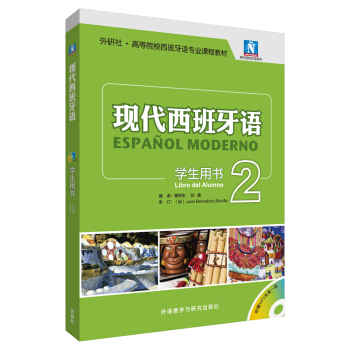
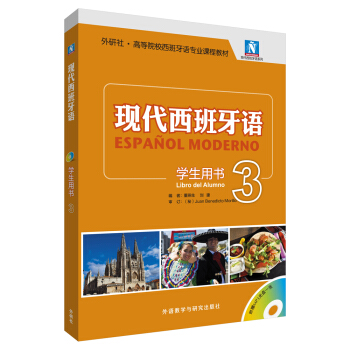
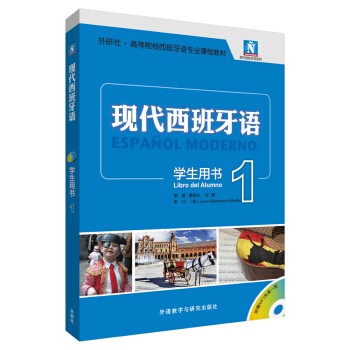
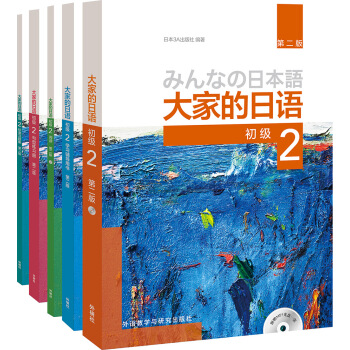
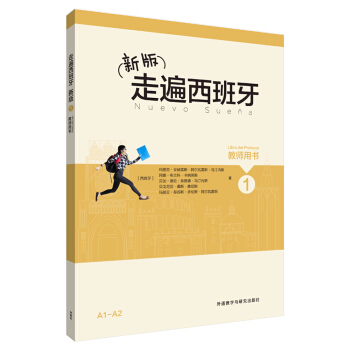
![麗聲英語百科分級讀物 牛津閱讀樹 第一級至第六級套裝(套裝共36冊)(點讀版 附MP3光盤) [4-11歲] pdf epub mobi 電子書 下載](https://pic.tinynews.org/12169067/59ad1778Na1776c35.jpg)
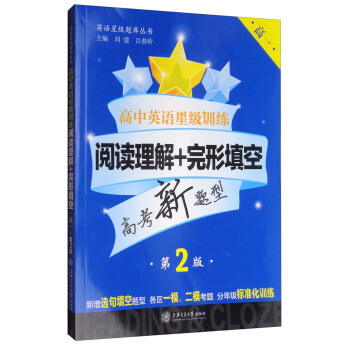
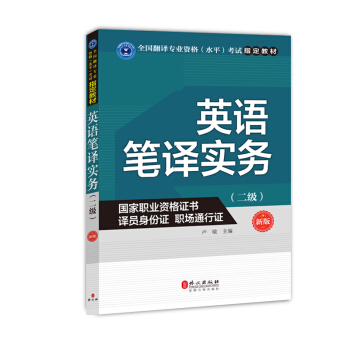
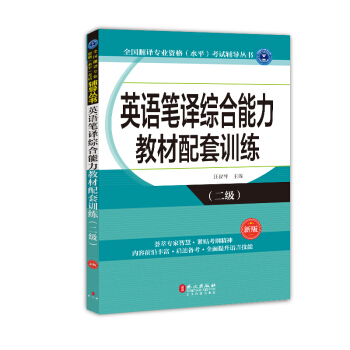
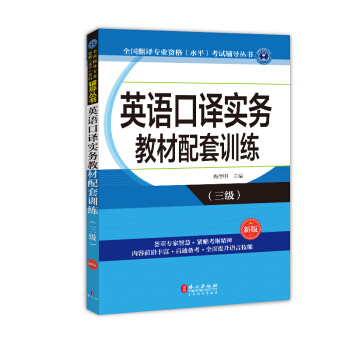
![小馬寶莉大聲朗讀故事(中英雙語版)(套裝共10冊)(專供) [2-7歲] pdf epub mobi 電子書 下載](https://pic.tinynews.org/12169889/59a7a404N05ad26f8.jpg)
